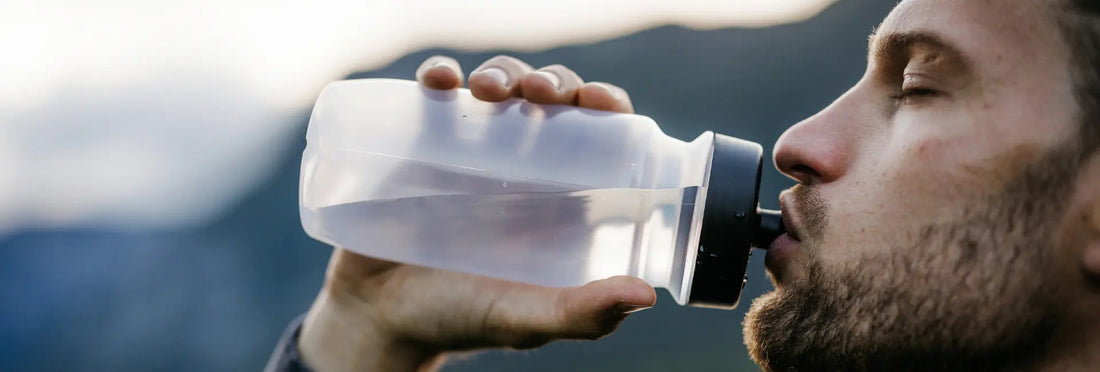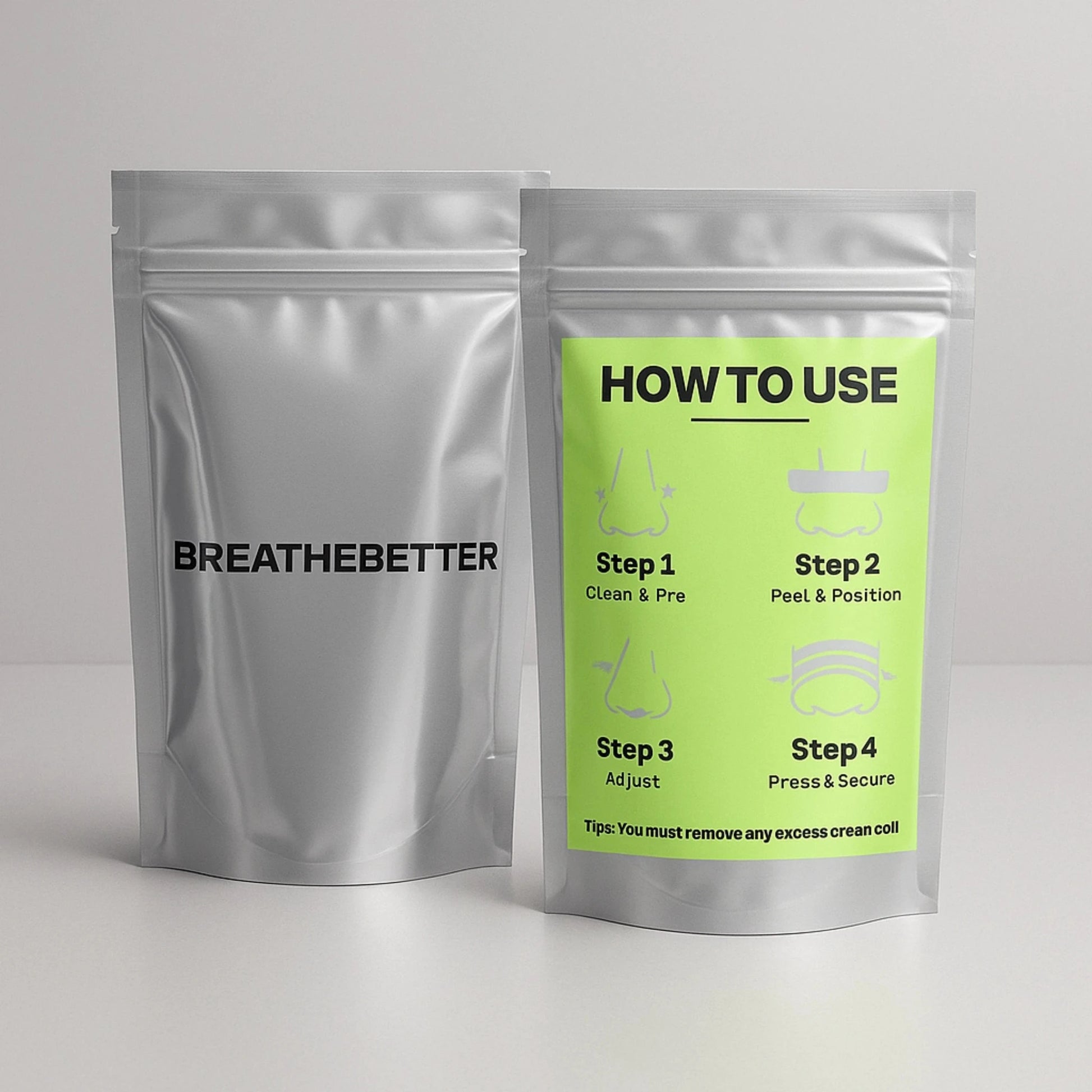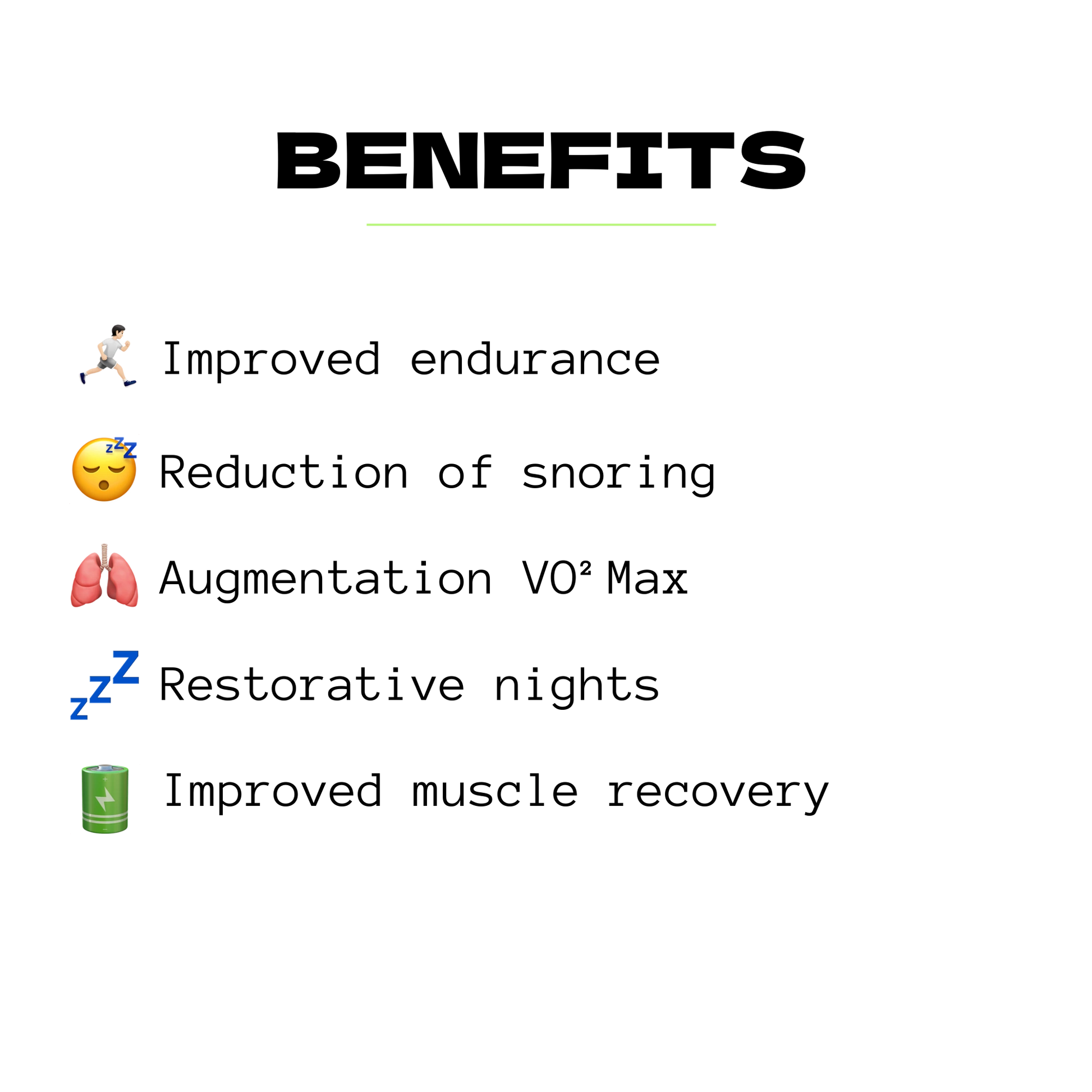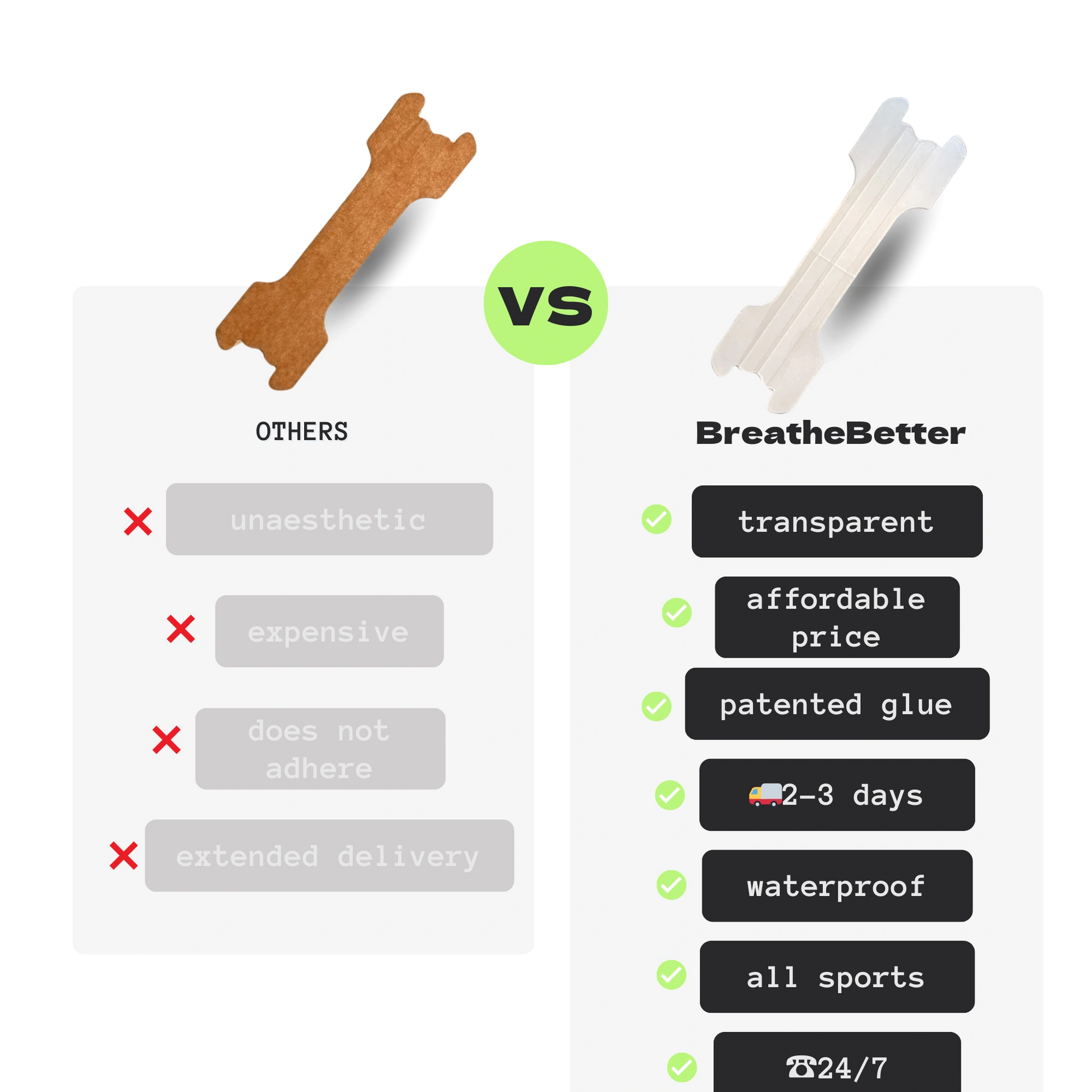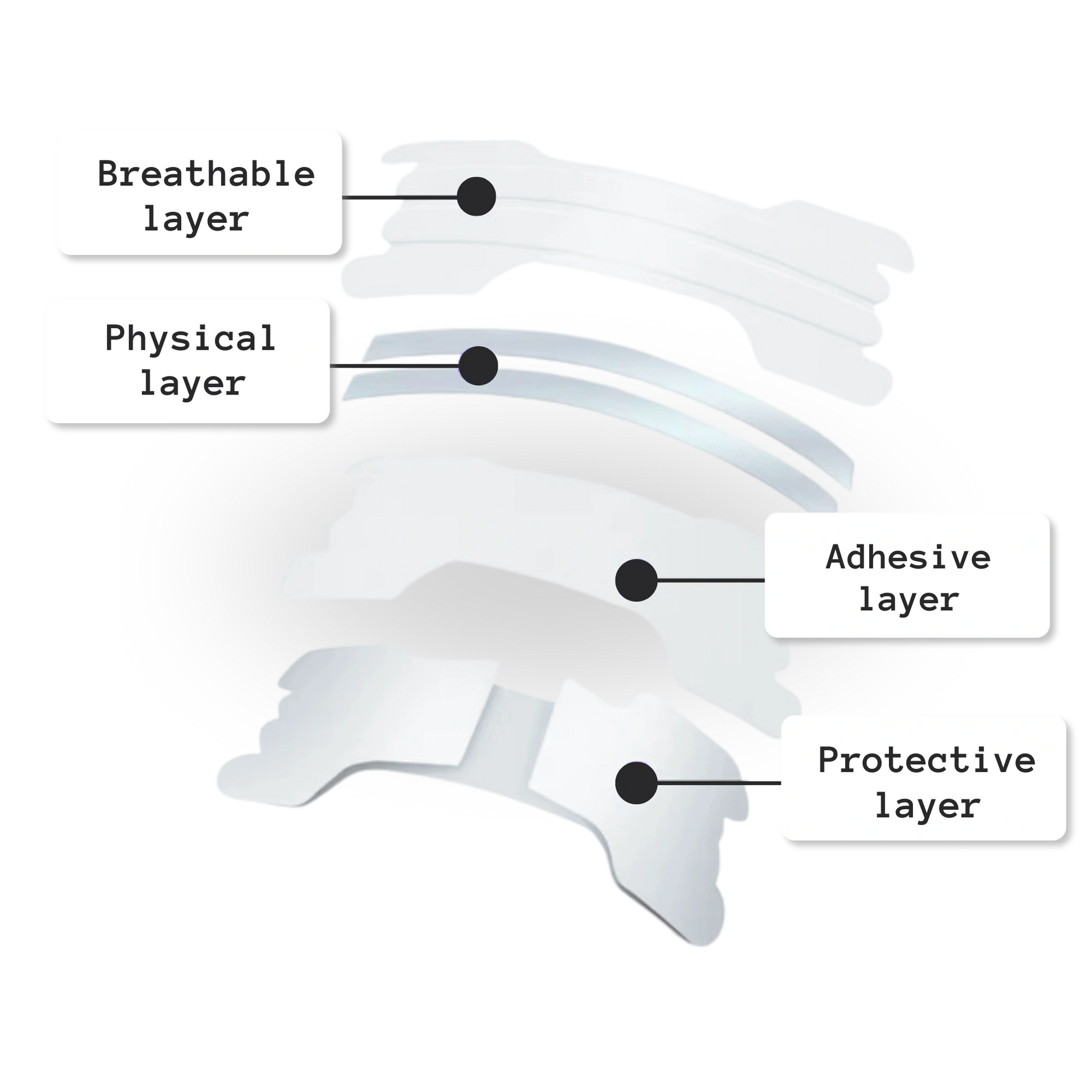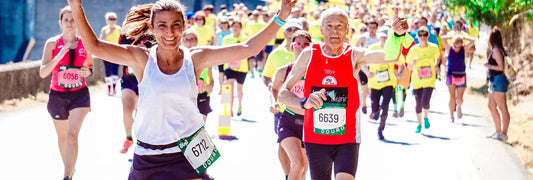Hydration during exercise isn't just about drinking water. It plays a fundamental role in athletic performance, endurance, and even respiratory health. Whether you're a seasoned athlete or a sports enthusiast, understanding the impact hydration has on your results can transform your workout. Proper hydration helps improve breathing, increase endurance, and reduce fatigue. In this article, we decode the importance of hydration during exercise and give you effective strategies for optimal hydration.
The importance of hydration during sport
Why is hydration crucial?
Hydration is a key factor in maintaining optimal performance during exercise. When you exercise, your body loses water through sweating and breathing, which can lead to performance declines if this loss is not replenished.
Here are the main effects of poor hydration:
- Premature fatigue : Lack of adequate hydration can lead to feelings of intense fatigue, reducing your ability to sustain prolonged exertion.
- Decreased concentration : A lack of hydration affects cognitive function, making it harder to focus on the task or performance.
- Muscle problems : Muscle cramps and pain can occur with dehydration.
Conversely, good hydration allows you to:
- Maintain a constant energy level
- Optimize blood circulation and muscle cell regeneration
- Preventing injuries related to fatigue and overheating
Hydration and respiratory performance
How does good hydration improve breathing?
Hydration has a direct impact on respiratory health. When you're well hydrated, your airways stay moist and clear, making it easier to breathe, especially during intense exercise.
Here are the main benefits of hydration for your breathing:
- Less nasal congestion : Proper hydration reduces mucus viscosity, which helps keep airways open.
- Better oxygen circulation : Water allows for better transport of nutrients and oxygen in the blood, which optimizes your breathing during exercise.
- Reducing symptoms of respiratory dehydration : Hydration helps prevent dry mucous membranes and difficulty breathing, especially during prolonged exertion or in dry conditions.
How to hydrate effectively during exercise?
Hydration strategies to optimize your performance
It's not enough to just drink water haphazardly. Hydration during exercise needs to be carefully considered to achieve the best results. Here are some effective strategies:
- Before exercise : Drink about 500 ml of water about 2 hours before exercise to prepare your body.
- During exercise : Drinking between 150 and 250 ml every 15 to 20 minutes is a good general rule. Ideally, you should choose drinks containing electrolytes (sodium, potassium, magnesium) to better compensate for losses due to perspiration.
- After exercise : Consume water or a recovery drink containing electrolytes and carbohydrates to aid muscle recovery and restore your fluid balance.
Hydration and endurance : Optimal hydration helps increase endurance. By maintaining a good level of hydration, you delay the onset of fatigue and prolong your performance. If you want to increase your performance through breathing, our nasal strips are made for you: Nasal strip for sports
Summary tables: quantity of water to drink according to the effort
| Type of activity | Recommended amount of water |
|---|---|
| Light effort (30 min) | 300-500 ml |
| Moderate effort (1 hour) | 500-700 ml |
| Intense effort (2 hours or more) | 1-1.5 L |
Hydration and post-exercise recovery
Proper hydration isn't just for exercise. It also plays a key role in post-exercise recovery.
Why is hydration crucial after exercise?
After a workout, your body needs to recover. Water plays a vital role in this process, helping to:
- Repair muscles : Hydration allows nutrients to better diffuse into muscle cells, facilitating recovery.
- Reduce muscle pain : By restoring water balance, you help limit muscle soreness.
- Eliminate toxins : Hydration supports the renal system to eliminate metabolic waste produced during exercise.
The risks of dehydration
What are the health consequences?
Dehydration during exercise can have serious health consequences, including:
- Excessive heat : If you don't drink enough, your body will have difficulty regulating its temperature, increasing the risk of heat stroke.
- Decreased performance : Physical abilities deteriorate rapidly when dehydrated, including strength, endurance, and concentration.
- Risk of injury : Dehydration reduces muscle flexibility and increases the risk of injury.
How can BreatheBetter nasal strips help?
BreatheBetter nasal strips are an excellent addition to optimize your breathing during exercise. They open your nasal passages and improve airflow, facilitating better oxygenation and increased performance. By reducing nasal resistance, they help you breathe more easily, increase your endurance, and improve recovery after your workouts.
Hydration during exercise is essential for maintaining optimal performance, preventing fatigue, and improving breathing. Adopting an effective hydration strategy before, during, and after exercise can help you push your physical limits. Make sure you're drinking enough water and incorporating electrolytes for better recovery. Don't forget that tools like BreatheBetter nasal strips can also help you breathe more efficiently and maximize your athletic performance.
And you, what's your hydration routine during exercise? Share your tips in the comments!

